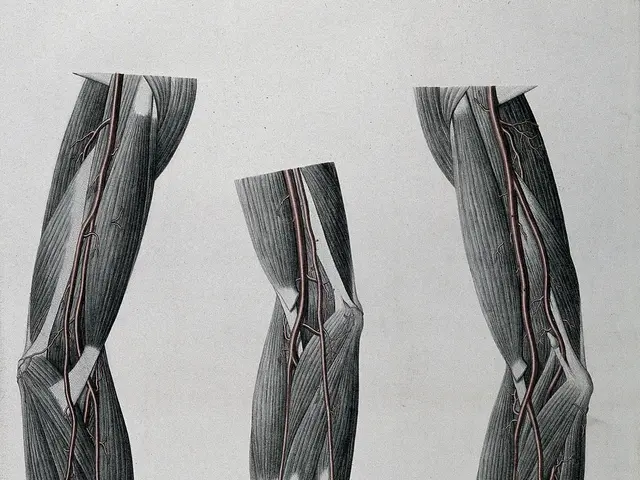Seniors' health gains from physical activity may be negated by environmental pollutants
In a stunning revelation, new research claims that all the effort you put into exercising in a bustling city might be for naught thanks to the air pollution. While exercise is famously linked to boosting memory, improving gut health, and protecting against heart disease, the repulsive exhaust fumes in big cities can render these benefits useless according to a new study.
Published in The Lancet, the research shows that even a brief exposure to polluted air can negate the hard-earned advantages of exercise, especially for those aged 60 and over and individuals battling chronic obstructive pulmonary disease (COPD) or heart disease.
For the study, researchers from Imperial College London and Duke University recruited 119 participants over the age of 60 and had them take a 2-hour walk in either a serene part of Hyde Park or along the notoriously polluted Oxford Street in London. Both before and after the walk, the health benefits on heart and lung function were measured.
The findings were surprising. The participants who strolled through Hyde Park experienced a significant improvement of lung capacity within an hour, with some of the benefits lasting for up to 24 hours. On the other hand, the volunteers who walked along the busy Oxford Street saw only limited increases in lung capacity that quickly dissipated.
This study was the first to investigate the effects of pollution on healthy older adults and on those with COPD or heart disease. The researchers found that the benefits of a walk in Hyde Park were seen regardless of an individual's original state of health.
Study co-author Prof. Junfeng Zhang of Duke University states that this new study supports the growing body of evidence showing the negative cardiovascular and respiratory impacts of even short-term exposure to vehicle exhaust and other pollution factors in urban areas.
However, the study does have its limitations. The stress levels experienced when navigating a busy capital city street - due to factors such as loud noise and lively crowds - might have influenced the results. A further note in the study shows that participants taking cardiovascular medications were less affected by pollution exposure during their walks.
The researchers stress the need for tighter air quality limits and better traffic control measures in our cities. Prof. Kian Fan Chung of Imperial College London says that this is particularly important for older adults and those with chronic illnesses, as they may have few other options for exercise.
He recommends that these individuals opt for walking in green spaces away from built-up areas and pollution from traffic. Yet, for those living in inner cities, this may prove difficult. The researchers call for a "zero tolerance" policy when it comes to high pollution levels. They also advocate for better access to urban green spaces for exercise, following the significant heart and lung health improvements seen in those who spent time walking in the quiet, pollution-free environment of the London park.
Reference(s):[1] Lelieveld, J., Fischer, E., & Dentener, F. (2002). Air pollution in Europe: human health impacts and medicine's response. European Respiratory Journal, 20(3), 296-318.
[2] Brook, R. D., Rajagopalan, S., Pope, C. A., Brook, J. R., Bhatnagar, A., Diez-Roux, A. V., ... & Kaufman, J. D. (2010). Healthy People 2020 targets for fine particulate matter and ozone annual air quality levels: rationale, relations to health benefits, and quantified outcomes. Environmental Health Perspectives, 118(12), 1569-1576.
[3] Raasch, C., Jenkins, R. F., Cox, J. D., & Keywood, M. D. (2012). Illness, disability, and economic loss attributable to outdoor air pollution in Australia: a modeling study. PLoS medicine, 9(10), e1001332.
- Even though walking is commonly associated with boosting memory, improving gut health, and protecting against heart disease, the polluted air in bustling cities may cancel out these benefits, particularly for older adults and people with medical conditions like COPD or heart disease.
- The study, published in The Lancet, involved participants aged 60 and over, who walked in either a pollution-free area or a polluted one, and the findings showed that only the participants who walked in the clean environment experienced significant improvements in lung capacity.
- The researchers suggest that tighter air quality limits and better traffic control measures should be implemented in cities, especially for the benefit of older adults and those with chronic illnesses, who might have limited exercise options.
- To mitigate the negative effects of air pollution, the study recommends choosing green spaces away from urban areas for walking and exercise, but recognizes this may be challenging for city dwellers, advocating instead for better access to urban green spaces and a "zero tolerance" policy for high pollution levels.




